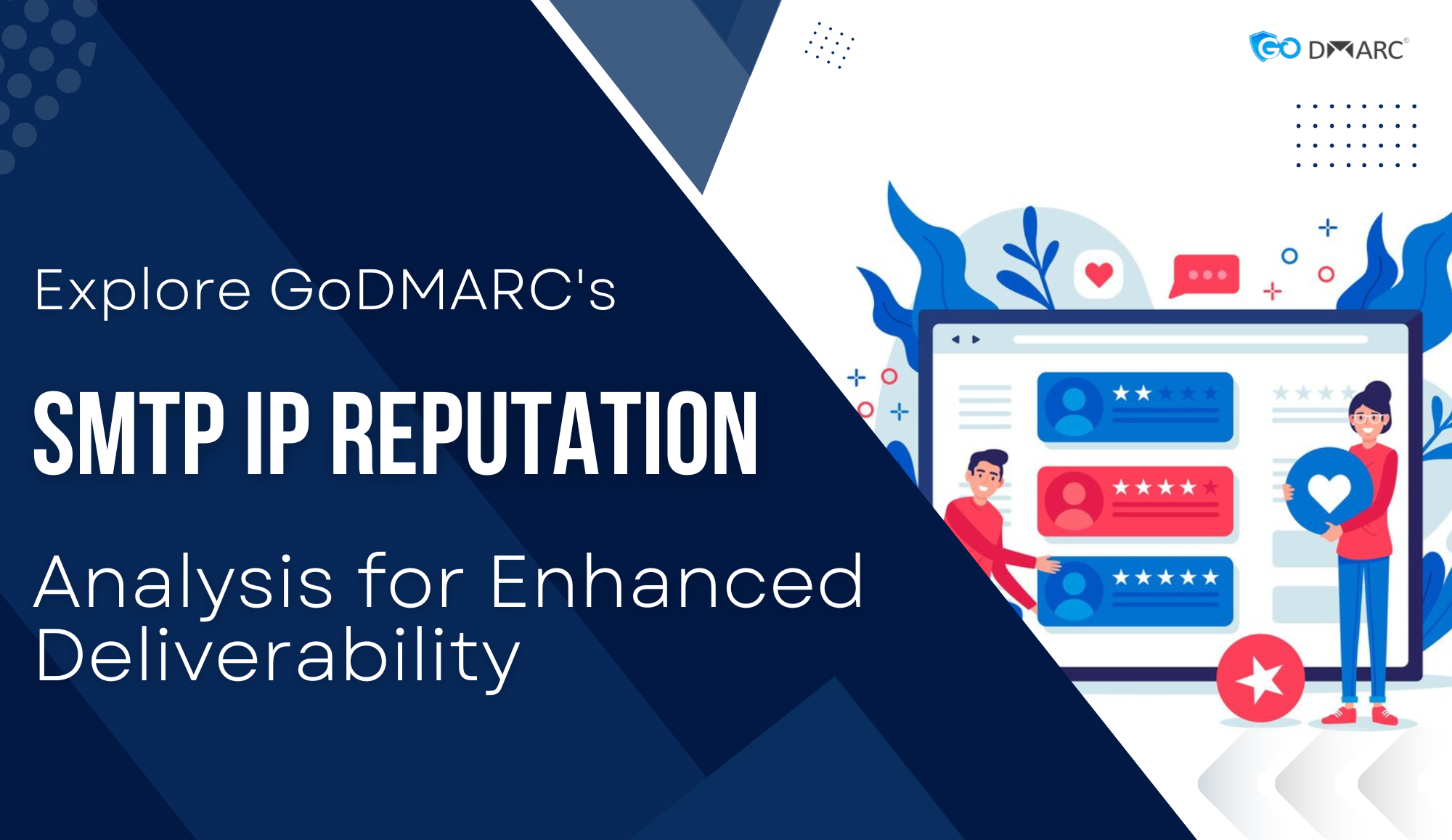Email security is paramount in today’s communication landscape, and DMARC (Domain-based Message Authentication, Reporting & Conformance) offers a powerful solution. As an email authentication protocol, DMARC empowers domain owners to define policies for email handling, ensuring enhanced security and protection against email-based threats. By leveraging DMARC, organizations can establish trust and maintain the integrity of their email communications.
TABLE OF CONTENTS
DMARC analytics plays a vital role in strengthening email security. It involves analyzing DMARC reports received from email receivers to gain valuable insights into the implementation of DMARC policies. These insights enable organizations to enhance their email security measures and effectively combat email fraud. By leveraging DMARC analytics, businesses can proactively protect their email communications and maintain a trusted and secure email environment.
This blog explores the significance of DMARC, covering the setup of DMARC records, analysis of DMARC reports, and the advantages of leveraging DMARC analytics for enhanced email security. Gain insights into protecting your organization against email-based threats and establishing a secure communication environment. Discover the power of DMARC in safeguarding your email infrastructure and ensuring the authenticity of your outbound messages.
Overview of DMARC
DMARC is an essential protocol enabling domain owners to establish email handling policies for receivers. These policies define the actions receivers should take when a DMARC check fails, like labeling the email as spam or rejecting it. By utilizing DMARC, organizations gain control over their email authentication, mitigating email-based risks and enhancing email deliverability. Empower your domain with DMARC to enforce email security measures and protect recipients from fraudulent or unauthorized emails.
DMARC operates in synergy with essential email authentication protocols like SPF (Sender Policy Framework) and DKIM (DomainKeys Identified Mail) to verify email authenticity. While DMARC is not an independent authentication protocol, it enhances existing protocols to offer a comprehensive email security solution. By leveraging the combined strength of DMARC, SPF, and DKIM, organizations can establish a robust defense against email spoofing, phishing, and unauthorized email activities. Implement DMARC alongside SPF and DKIM to bolster your email security posture and ensure the trustworthiness of your email communications.
DMARC Record Creation and DMARC Report Analysis
To initiate the implementation of DMARC, domain owners must publish a DMARC record in their domain’s DNS (Domain Name System). This record outlines the DMARC policy, defines the appropriate course of action for failed DMARC checks, and designates the destination address for DMARC reports. By configuring the DMARC record, organizations establish clear guidelines for email receivers, enhancing email security and ensuring the proper handling of incoming messages. Take control of your domain’s email authentication by setting up a DMARC record to fortify your email infrastructure and protect against unauthorized activities.
Upon publishing the DMARC record, email receivers promptly commence sending DMARC reports to the designated address. These comprehensive reports offer valuable insights into the implementation of the DMARC policy, including the success or failure of email authentication checks. By analyzing these reports, domain owners gain a clear understanding of their email ecosystem, such as the volume of emails passing or failing DMARC evaluations. This valuable information enables organizations to assess the effectiveness of their email authentication setup, identify any issues or vulnerabilities, and take proactive measures to enhance email security and ensure compliance with DMARC policies. Stay informed and make informed decisions with actionable insights from DMARC reports.
Analyzing DMARC reports is a critical step in evaluating the effectiveness of the DMARC policy. DMARC analytics tools play a vital role in this process, offering in-depth insights into the implementation of the policy. By leveraging these tools, domain owners can gain valuable information about the performance of their email authentication measures. They can identify which emails are successfully passing the DMARC check and which ones are failing, along with the reasons behind the failures. Armed with this knowledge, organizations can promptly address security vulnerabilities, mitigate email fraud risks, and bolster their overall email security strategy. Utilize DMARC analytics tools to stay ahead of potential threats and ensure the integrity of your email communications.
The Advantages of DMARC Analytics for Better Email Security
- Enhanced Email Deliverability: Gain valuable insights into email handling by receivers and address deliverability issues effectively, improving the chances of emails reaching recipients’ inboxes.
- Combat Email Fraud: Identify and prevent email fraud, including phishing and spoofing attacks, by understanding which emails pass or fail the DMARC check and the reasons behind it.
- Deepened Understanding of Email Security: Develop a comprehensive understanding of email security by analyzing DMARC reports, enabling proactive identification of security vulnerabilities and fraud prevention measures.
- Heightened Visibility into Email Security: Obtain increased visibility into email security, allowing domain owners to monitor the performance of their DMARC policy and address any potential security concerns promptly.
- Enhanced Control Over Email Security: Take control of email security by leveraging DMARC analytics to assess policy implementation, improve security measures, and safeguard against email fraud, thereby protecting the domain’s reputation.
- Improved Reputation Management: Utilize DMARC analytics to maintain a positive reputation, address issues causing emails to be marked as spam or rejected, and enhance overall email deliverability.
- Integration with Email Security Solutions: Seamlessly integrate DMARC analytics with other email security solutions like SPF and DKIM to create a robust email security framework, fortifying the protection of email communications.
Summing up!
In conclusion, DMARC analytics plays a vital role in ensuring robust email security. Through thorough analysis of DMARC reports, domain owners can effectively implement their DMARC policy and enhance their email security. By leveraging GoDMARC services you can uphold a positive domain reputation.
Check out the GoDMARC pricing page to know more!
FAQs
Q1. Can DMARC analytics be integrated with other email security solutions?
Yes, DMARC analytics can be integrated with other email security protocols like SPF and DKIM to create a comprehensive email security solution, enhancing the overall protection against email threats.
Q2. How does DMARC analytics help in maintaining a positive email reputation?
By analyzing DMARC reports, domain owners can understand how their emails are handled by receivers, take corrective actions to resolve issues, and ensure a positive email reputation, resulting in improved deliverability.




